John Ruskin - Love's Meinie - Three Lectures on Greek and English Birds
Здесь есть возможность читать онлайн «John Ruskin - Love's Meinie - Three Lectures on Greek and English Birds» — ознакомительный отрывок электронной книги совершенно бесплатно, а после прочтения отрывка купить полную версию. В некоторых случаях можно слушать аудио, скачать через торрент в формате fb2 и присутствует краткое содержание. Издательство: Иностранный паблик, Жанр: Биология, literature_19, foreign_edu, foreign_antique, на английском языке. Описание произведения, (предисловие) а так же отзывы посетителей доступны на портале библиотеки ЛибКат.
- Название:Love's Meinie: Three Lectures on Greek and English Birds
- Автор:
- Издательство:Иностранный паблик
- Жанр:
- Год:неизвестен
- ISBN:нет данных
- Рейтинг книги:3 / 5. Голосов: 1
-
Избранное:Добавить в избранное
- Отзывы:
-
Ваша оценка:
- 60
- 1
- 2
- 3
- 4
- 5
Love's Meinie: Three Lectures on Greek and English Birds: краткое содержание, описание и аннотация
Предлагаем к чтению аннотацию, описание, краткое содержание или предисловие (зависит от того, что написал сам автор книги «Love's Meinie: Three Lectures on Greek and English Birds»). Если вы не нашли необходимую информацию о книге — напишите в комментариях, мы постараемся отыскать её.
Love's Meinie: Three Lectures on Greek and English Birds — читать онлайн ознакомительный отрывок
Ниже представлен текст книги, разбитый по страницам. Система сохранения места последней прочитанной страницы, позволяет с удобством читать онлайн бесплатно книгу «Love's Meinie: Three Lectures on Greek and English Birds», без необходимости каждый раз заново искать на чём Вы остановились. Поставьте закладку, и сможете в любой момент перейти на страницу, на которой закончили чтение.
Интервал:
Закладка:
John Ruskin
Love's Meinie: Three Lectures on Greek and English Birds
PREFACE
The birds chirping feebly,—mostly chaffinches answering each other, the rest discomposed, I fancy, by the June snow; 1 1 The summits of the Old Man, of Wetherlam, and Helvellyn, were all white, on the morning when this was written.
the lake neither smooth nor rippled, but like a surface of perfectly bright glass, ill cast; the lines of wave few and irregular, like flaws in the planes of a fine crystal.
I see this book was begun eight years ago;—then intended to contain only four Oxford lectures: but the said lectures also 'intended' to contain the cream of forty volumes of scientific ornithology. Which intentions, all and sundry, having gone, Carlyle would have said, to water, and more piously-minded persons, to fire, I am obliged now to cast my materials into another form: and here, at all events, is a bundle of what is readiest under my hand. The nature and name of which I must try to make a little more intelligible than my books have lately been, either in text or title.
'Meinie' is the old English word for 'Many,' in the sense of 'a many' persons attending one, as bridesmaids, when in sixes or tens or dozens;—courtiers, footmen, and the like. It passes gradually into 'Menial,' and unites the senses of Multitude and Servitude.
In the passages quoted from, or referred to in, Chaucer's translation of the Romance of the Rose, at the end of the first lecture, any reader who cares for a clue to the farther significances of the title, may find one to lead him safely through richer labyrinths of thought than mine: and ladder enough also,—if there be either any heavenly, or pure earthly, Love, in his own breast,—to guide him to a pretty bird's nest; both in the Romances of the Rose and of Juliet, and in the Sermons of St. Francis and St. Bernard.
The term 'Lecture' is retained, for though I lecture no more, I still write habitually in a manner suited for oral delivery, and imagine myself speaking to my pupils, if ever I am happily thinking in myself. But it will be also seen that by the help of this very familiarity of style, I am endeavoring, in these and my other writings on Natural History, to compel in the student a clearness of thought and precision of language which have not hitherto been in any wise the virtues, or skills, of scientific persons. Thoughtless readers, who imagine that my own style (such as it is, the one thing which the British public concedes to me as a real power) has been formed without pains, may smile at the confidence with which I speak of altering accepted, and even long-established, nomenclature. But the use which I now have of language has taken me forty years to attain; and those forty years spent, mostly, in walking through the wilderness of this world's vain words, seeking how they might be pruned into some better strength. And I think it likely that at last I may put in my pruning-hook with effect; for indeed a time must come when English fathers and mothers will wish their children to learn English again, and to speak it for all scholarly purposes; and, if they use, instead, Greek or Latin, to use them only that they may be understood by Greeks or Latins; 2 2 Greek is now a living nation's language, from Messina to Delos—and Latin still lives for the well-trained churchmen and gentlemen of Italy.
and not that they may mystify the illiterate many of their own land. Dead languages, so called, may at least be left at rest, if not honored; and must not be torn in mutilation out of their tumuli, that the skins and bones of them may help to hold our living nonsense together; while languages called living, but which live only to slack themselves into slang, or bloat themselves into bombast, must one day have new grammars written for their license, and new laws for their insolence.
Observe, however, that the recast methods of classification adopted in this book, and in 'Proserpina,' must be carefully distinguished from their recastings of nomenclature. I am perfectly sure that it is wiser to use plain short words than obscure long ones; but not in the least sure that I am doing the best that can be done for my pupils, in classing swallows with owls, or milkworts with violets. The classification is always given as tentative; and, at its utmost, elementary: but the nomenclature, as in all probability conclusive.
For the rest, the success and the service of all depend on the more or less thorough accomplishment of plans long since laid, and which would have been good for little if their coping could at once have been conjectured or foretold in their foundations. It has been throughout my trust, that if Death should write on these, "What this man began to build, he was not able to finish," God may also write on them, not in anger, but in aid,
"Il etoit tout convert d'oisiaulx."
LECTURE I. 3 3 Delivered at Oxford, March 15th, 1873.
THE ROBIN
1. Among the more splendid pictures in the Exhibition of the Old Masters, this year, you cannot but remember the Vandyke portraits of the two sons of the Duke of Lennox. I think you cannot but remember it, because it would be difficult to find, even among the works of Vandyke, a more striking representation of the youth of our English noblesse; nor one in which the painter had more exerted himself, or with better success, in rendering the decorous pride and natural grace of honorable aristocracy.
Vandyke is, however, inferior to Titian and Velasquez, in that his effort to show this noblesse of air and persons may always be detected; also the aristocracy of Vandyke's day were already so far fearful of their own position as to feel anxiety that it should be immediately recognized. And the effect of the painter's conscious deference, and of the equally conscious pride of the boys, as they stood to be painted, has been somewhat to shorten the power of the one, and to abase the dignity of the other. And thus, in the midst of my admiration of the youths' beautiful faces, and natural quality of majesty, set off by all splendors of dress and courtesies of art, I could not forbear questioning with myself what the true value was, in the scales of creation, of these fair human beings who set so high a value on themselves; and,—as if the only answer,—the words kept repeating themselves in my ear, "Ye are of more value than many sparrows."
2. Passeres, στρονθος [Greek: strouthos]—the things that open their wings, and are not otherwise noticeable; small birds of the land and wood; the food of the serpent, of man, or of the stronger creatures of their own kind,—that even these, though among the simplest and obscurest of beings, have yet price in the eyes of their Maker, and that the death of one of them cannot take place but by His permission, has long been the subject of declamation in our pulpits, and the ground of much sentiment in nursery education. But the declamation is so aimless, and the sentiment so hollow, that, practically, the chief interest of the leisure of mankind has been found in the destruction of the creatures which they professed to believe even the Most High would not see perish without pity; and, in recent days, it is fast becoming the only definition of aristocracy, that the principal business of its life is the killing of sparrows.
Sparrows, or pigeons, or partridges, what does it matter? "Centum mille perdrices plumbo confecit;" 4 4 The epitaph on Count Zachdarm, in "Sartor Resartus."
that is, indeed, too often the sum of the life of an English lord; much questionable now, if indeed of more value than that of many sparrows.
Интервал:
Закладка:
Похожие книги на «Love's Meinie: Three Lectures on Greek and English Birds»
Представляем Вашему вниманию похожие книги на «Love's Meinie: Three Lectures on Greek and English Birds» списком для выбора. Мы отобрали схожую по названию и смыслу литературу в надежде предоставить читателям больше вариантов отыскать новые, интересные, ещё непрочитанные произведения.
Обсуждение, отзывы о книге «Love's Meinie: Three Lectures on Greek and English Birds» и просто собственные мнения читателей. Оставьте ваши комментарии, напишите, что Вы думаете о произведении, его смысле или главных героях. Укажите что конкретно понравилось, а что нет, и почему Вы так считаете.
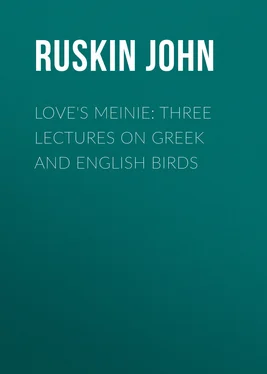
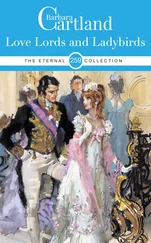

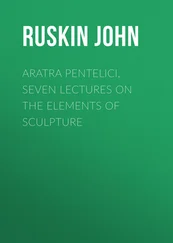

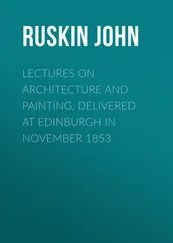


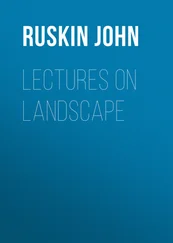

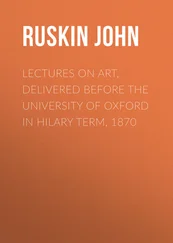

![John Bruce - The Lettsomian Lectures on Diseases and Disorders of the Heart and Arteries in Middle and Advanced Life [1900-1901]](/books/749387/john-bruce-the-lettsomian-lectures-on-diseases-and-disorders-of-the-heart-and-arteries-in-middle-and-advanced-life-1900-1901-thumb.webp)